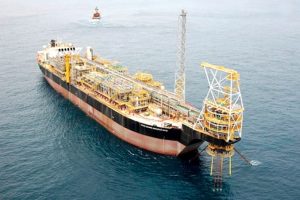 Ghana’s National Petroleum Authority (NPA) has maintained the prices of fuel at the pumps in its regular review of the prices of petroleum products at the time when international oil prices are falling.
Ghana’s National Petroleum Authority (NPA) has maintained the prices of fuel at the pumps in its regular review of the prices of petroleum products at the time when international oil prices are falling.
As at yesterday, prices of oil went below $60 per a barrel but Ghanaians are yet to benefit from the plummeting prices of oil.
With the upholding of the petroleum prices, petrol still sells 3 cedis 39 pesewas per litre, diesel at 3 cedis 30 pesewas, Kerosene at 3 cedis 25 pesewas and liquefied Petroleum Gas (LPG) for 2 cedis 94 pesewas per kilogram.
Although consumers, civil society organisations and the political parties have called on the NPA to reduce the prices at the pumps, it insists that it is using the price differentials to defray debt owed the Bulk Oil Distribution companies (BDCs) in the country.
Information picked by The Chronicle indicate that the BDCs are being owed by the government to the tune of GHc175 million, as subsidy on refined products.
Also, they are asking government to pay about GH¢1.3billion in respect of forex exchange losses.
Parliament, in November this year, passed a special petroleum tax with the assurance that monies accrued from the over recovery on fuel will be paid to BDCs which import refined fuel.
The CEO of the BDCs’ Chamber, Senyo Hosi, indicated that government was yet to pay them any money.
“We have not received funds directly from Government. The only funds we have received so far have been over recoveries.
“When we sell, the excess funds [accrued]; we’ve retained them to pay down a part of Government’s debt. “We are still hoping the government will intervene,” he explained to Joy FM, an Accra-based radio station.
He also indicated that the government was yet to make payment from the proceeds of the new petroleum tax imposed late last month.
Members of the BDCs’ chamber are due to meet with the Minister of Finance to come with modalities on how the tax would help in defraying the huge debt, according to Mr. Hosi.
EFFECTS OF OIL PRICES FALL ON ECONOMY
The Minister of Finance, Seth Terkper noted: “Ghana has had to endure the harsh economic impact of the recent declines in commodity prices. In particular, the declining price of gold has had adverse effects on jobs and revenues in the mining sector.
The projected decline in oil prices would also impact negatively on the fiscal framework through lower revenues from oil exports whilst at the same time dampening the effect of foreign exchange pressures arising out of oil lower import bill”.
While crude oil exports was estimated at US$2,925.7 million, down by 1.7 percent, compared with the level recorded in the corresponding period in 2013.
The marginal decrease in value was due to a decrease in volume exported from 27.6 million barrels in 2013 to 27.3 million barrels in 2014. Also, the average realised price of crude oil decreased by 0.6 percent to settle at US$107.3 per barrel, according to Mr Terkper.
He however assured Ghanaians in his 2015 Budget that as commodity prices decline further, government would take necessary steps to mitigate potential impacts.
Explaining: “To sustain our medium term growth prospects, measures are being put in place to reduce our vulnerability to external shocks through such means as strengthening our tools for risk management, diversifying and adding value to our exports, and supporting local production of imported goods which can be produced domestically.
The fiscal frameworks would also be strengthened to foster medium-term planning and preserve debt sustainability, as well as deepen structural transformation of the economy”.
African Eye News.com





